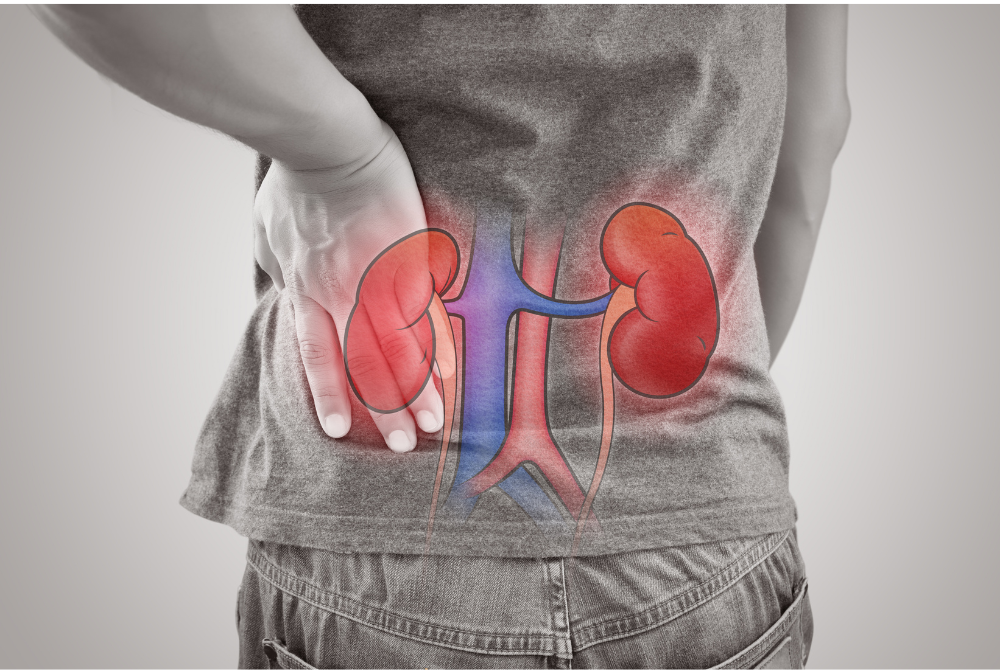Understanding kidney health, tips for prevention and management
These bean-shaped organs play a crucial role in maintaining the delicate balance necessary for the body to function optimally.

SHAH ALAM - The kidneys, often described as the unsung heroes of the human body, quietly perform important functions essential for our overall health and well-being.
Despite their small size, these bean-shaped organs play an outsized role in maintaining the delicate balance necessary for the body to function optimally.
From filtering waste and toxins from the blood to regulating blood pressure and electrolyte levels, the kidneys are indispensable to our physiological equilibrium.
Yet, despite their importance, kidney health is frequently overlooked until problems arise.
Understanding the significance of caring for our kidneys and adopting proactive measures to maintain their health is not only crucial but can also be lifesaving.
Here's a guide to understanding kidney health, along with tips for prevention and management to avoid kidney failure.
Understanding Kidney Health:
- Stay hydrated: Hydration is essential for kidney function. It helps the kidneys remove waste and toxins from the body efficiently. Drink plenty of water throughout the day, especially during hot weather or physical activity.
- Maintain a balanced diet: A diet rich in fruits, vegetables, whole grains, and lean proteins can support kidney health. Avoid excessive consumption of salt, processed foods, and sugary beverages, as they can strain the kidneys over time.
- Control blood pressure: High blood pressure can damage the kidneys over time. Monitor your blood pressure regularly and take steps to keep it within a healthy range through lifestyle changes and, if necessary, medication prescribed by a healthcare professional.
- Manage diabetes: Diabetes is a leading cause of kidney disease. If you have diabetes, it's crucial to manage your blood sugar levels effectively through medication, diet, exercise, and regular monitoring.
- Limit alcohol consumption: Excessive alcohol intake can disrupt kidney function and lead to dehydration.
- Avoid smoking: Smoking can impair blood flow to the kidneys and increase the risk of kidney disease. Quit smoking to protect your kidney health and overall well-being.
- Exercise regularly: Engage in regular physical activity to maintain a healthy weight, improve circulation and reduce the risk of conditions that can harm the kidneys, such as obesity and heart disease.
What happens if kidneys fail?
- Less urine output: When kidneys fail, they may produce less urine, leading to fluid retention and swelling in the body, particularly in the legs, ankles, or face.
- Fatigue and weakness: Kidney failure can cause anaemia, leading to fatigue, weakness and difficulty concentrating due to decreased oxygen delivery to tissues.
- High blood pressure: Kidney failure can disrupt the body's balance of fluids and electrolytes, leading to high blood pressure, further damaging the kidneys in a vicious cycle.
- Fluid and electrolyte imbalance: Kidneys regulate fluid and electrolyte balance in the body. When they fail, imbalances can occur, leading to symptoms such as nausea, vomiting, muscle cramps and irregular heart rhythms.
- Toxin buildup: Healthy kidneys filter waste and toxins from the blood. In kidney failure, these substances can accumulate in the body, causing symptoms like confusion, itching and a metallic taste in the mouth.
- Bone health issues: Kidney failure can disrupt the body's ability to maintain proper levels of calcium and phosphorus, leading to bone weakness, fractures and an increased risk of osteoporosis.
- Cardiovascular complications: Individuals with kidney failure are at increased risk of cardiovascular disease, including heart attacks, strokes, and peripheral artery disease, due to factors such as high blood pressure and fluid retention.
Download Sinar Daily application.Click Here!















